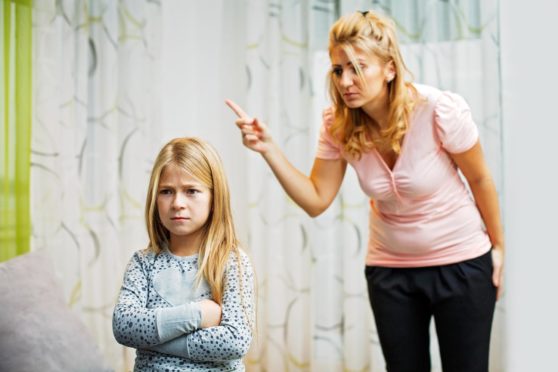Every morning since the start of the pandemic I have delivered the Press and Journal to my parents’ house.

It’s a job I do willingly and with love and when they protest, as they often do, that they are perfectly capable of going out and getting it for themselves, I dig my heels in. It gets me out of the house in the morning, I get to sing in the car and I get to welfare check my folks for signs of worry, insomnia, illness or, more optimistically, for signs that scones have been made and I’ll get to take some home, warm, in a baggie.
I don’t need to remove my mask to enjoy my daily Covid-19 symptom-check: the glorious fragrance of the old rosebush, Gertrude Jekyll, which has flowered abundantly all season by their front door. Already evocative of my childhood, I wonder whether, in years to come, that scent will transport me all the way back to 2020: the year we went quiet.
“What’s your news?” I ask, scooshing dad with hand-san before handing over his P&J. “Ach, you’re seeing it,” comes the reply. Same here, dad, same here. Because the truth is, we’re all out of news this year. We’re hunkered down for the long-haul where days melt into weeks and months and we don’t know when, how, or if things are ever going to change.
Our doorstep conversations have grown more local, more homespun, as though we’ve been transported centuries back in time – there are no aeroplanes overhead, after all. Will we soon be girning about the price of whalebone and gossiping about how the new young curate in the parish would make an admirable match for dear Fanny?
We discuss the weather first, of course, before moving on to the daily run-through of the wellbeing of the wider family. Those in work are keeping their heads down, quietly getting on with it. Those without, some of our young folk, have gone quiet too. This year they’ve discovered that the qualifications which they worked so hard to achieve at school and college mean nothing when the careers they qualified for aren’t hiring. But they know there are others far worse off than them, so they’re quietly striving to forge alternative paths into hazy futures while we quietly support them as best we can.
We talk a lot about food — it’s pretty much the only thing we can enjoy in the safety of our homes right now that provides real pleasure while being simultaneously legal, locally available and a suitable topic for discussing with our parents. We’ve tried all the soups, exhausted our recipe books for meals ‘with a twist’ and have returned full-circle to the quiet comfort of old family favourites, with mashed tatties and gravy.
I repainted my kitchen this summer, a job of Forth Bridge proportions that kept me in chat for months. I miss that sweet glaze in my parents’ eyes as they slowly backed away from the door while I talked them through every brushstroke. We were all experts in home décor by the end but now the job is done, they can’t even come to admire it. Quiet satisfaction is no substitute for parental approval.
It’s not that the news itself has gone quiet, of course, quite the reverse – it’s deafening. We can’t hear ourselves think and neither, it seems, can the people tasked with trying to sort things out. Instead of coming together with quiet courage and open minds, they have polarised.
Remember primary school Christmas parties? I do. Girls and boys, all sparkly frocks and elastic ties, covertly eyeing each other from opposite sides of the assembly hall in fear disguised as disdain, until determined teachers crowbarred them from the wall and strong-armed them into executing a distressing Gay Gordons but here’s the point: at least that dance got danced. Imagine the chaos that would have broken out had the teachers left the room.
The outside world feels like that this year. People are huddled on one side in groupthink bubbles or roaring incoherently in the middle where it’s all din and fear and exhaustion because there’s no grown-up to call a halt to the madness, send everyone to their rooms for some quiet time and return later with a beaker of juice and a biscuit.
No wonder we have gone quiet. Why join in if nobody can hear? It seems wiser, and safer, to stay close to home, smell the flowers and quietly deliver the news.
Erica Munro is a novelist, playwright, screenwriter and freelance editor
